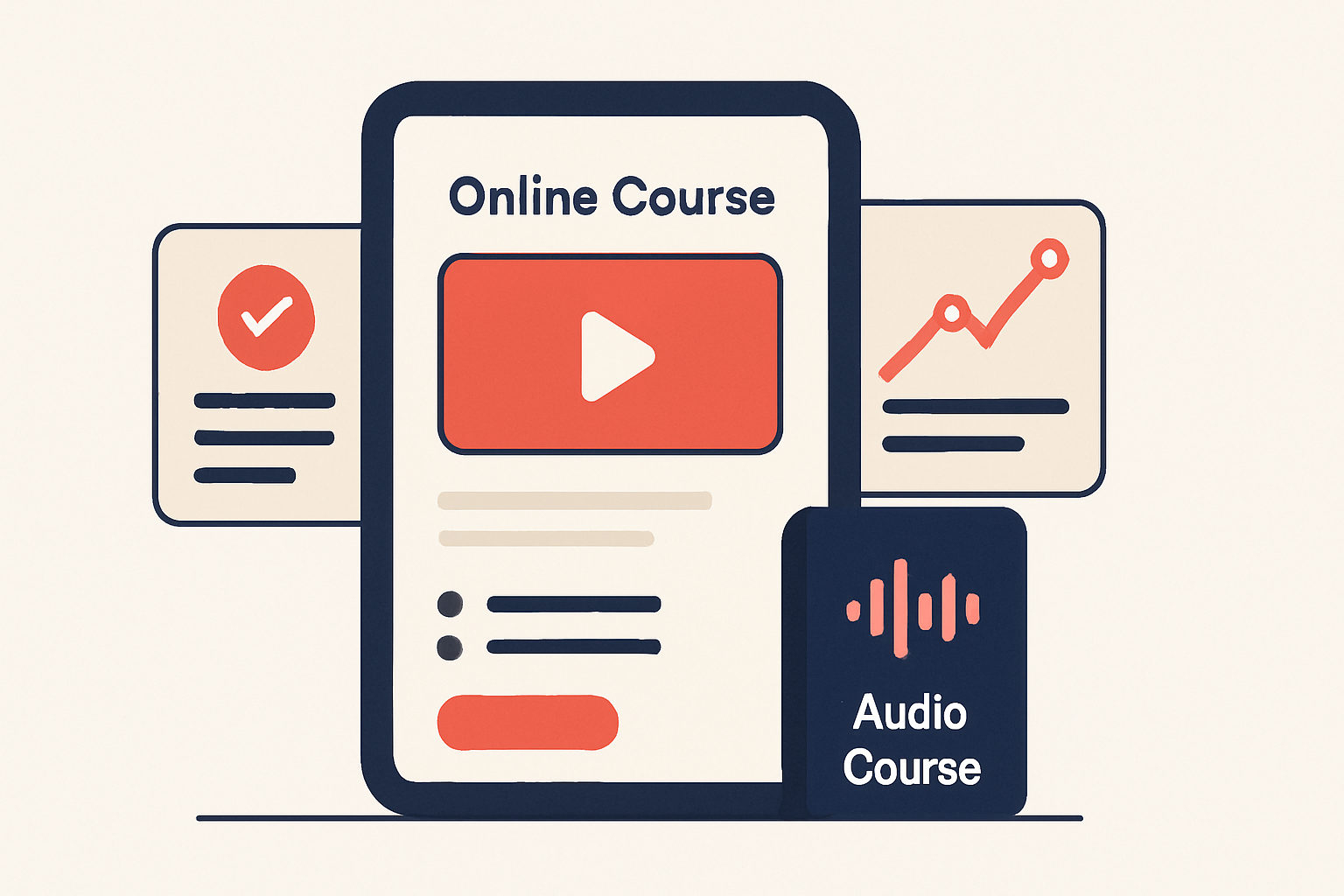The Future of E-Learning Apps: From One-Time Courses to Subscription-Based Models

The way people learn online is changing fast. Both learners and educators are moving past the traditional model of one-off online course sales. Instead, they’re seeking continuous value and flexible access. Learners now want to engage with education as an ongoing experience, not a single transaction. At the same time, educators want more sustainable ways to grow and monetize their knowledge. This shift is redefining what e-learning apps look like and highlighting the importance of subscription-based models. Platforms like Audiorista are helping educators turn audio content into scalable, subscription-driven learning experiences that align perfectly with this change. In this article, we’ll explore key e-learning app trends, the advantages of subscription e-learning apps, a comparison with traditional course sales, the features fueling growth, and predictions about where digital learning is heading in 2024.
Trends and growth of e-learning apps
The biggest shift in e-learning app trends heading into 2024 is the growing demand for on-demand and mobile-first learning. Learners today expect education to be available anytime and anywhere, often on their mobile devices. They also show a marked preference for ongoing access rather than purchasing standalone courses. This trend reflects a wider cultural movement toward subscription-based services across industries—from entertainment streaming to digital productivity apps—and now it’s transforming education too. As users become accustomed to seamless digital experiences, online learning platforms must adapt to meet these expectations. Audiorista’s platform is designed to meet these needs, enabling creators to deliver audio-based courses with mobile accessibility and on-demand access.
The move toward subscription e-learning apps is largely driven by two factors: sustainable revenue for businesses and stronger retention for learners. Unlike one-time course sales, subscriptions allow educators and organizations to establish predictable recurring income. At the same time, students benefit from ongoing access to content, which supports long-term engagement and repeat learning. Subscription models also encourage learners to interact with new material regularly, improving both the perceived and actual value of the platform. These models are being adopted by industries ranging from corporate training to professional development, showing their versatility and long-term potential. Audiorista supports flexible subscription management, making it easy for educators to offer memberships and recurring access to their content.
Traditionally, online courses were sold as single products: learners paid once and received lifetime access. While this model offered simplicity, it also meant educators had to constantly chase new customers to maintain revenue. By contrast, membership or subscription models create predictable earnings and reduce reliance on one-time sales. This stability allows creators to focus more on delivering high-quality content rather than constant marketing. Educators looking to build recurring membership models can explore solutions for course creators offered by Audiorista. These resources make it easier to manage subscriptions while enabling sustainable growth through built-in monetization tools and analytics.
Features and future of online learning
The features available within modern e-learning apps are central to their growth. Mobile accessibility ensures that learners can study on the go, while audio-based learning appeals to audiences seeking flexibility and convenience. Personalized recommendations improve user satisfaction by curating relevant content, and integrated community elements help foster deeper engagement among learners. Together, these features drive retention and scalability for digital learning businesses. These key features for online course apps—available through Audiorista—help educators design seamless experiences that fuel online course app growth. Audiorista also offers no-code app creation, analytics, and integrations to streamline the process for educators and businesses.
Looking ahead to 2024, the future of digital learning will be shaped by micro-learning, AI integration, adaptive personalization, and podcast-style audio courses. Micro-learning delivers education in shorter segments that are easier to fit into daily life, while AI will enhance adaptive personalization by recommending content tailored to each learner’s progress. Audio-based formats are also set to gain more traction, particularly podcast-style learning that complements mobile lifestyles. These innovations reinforce why subscription-based models remain the best fit: they allow learners to access continuously updated, flexible learning experiences. For educators and organizations, this alignment ensures that subscription-based approaches drive online course app growth well into the future. Audiorista’s platform is built to support these trends, enabling rapid content updates, flexible course formats, and personalized learning paths.
Conclusion
Start building your subscription-based learning experience today with Audiorista—where educators can easily create, distribute, and grow audio-first courses that learners actually love.


